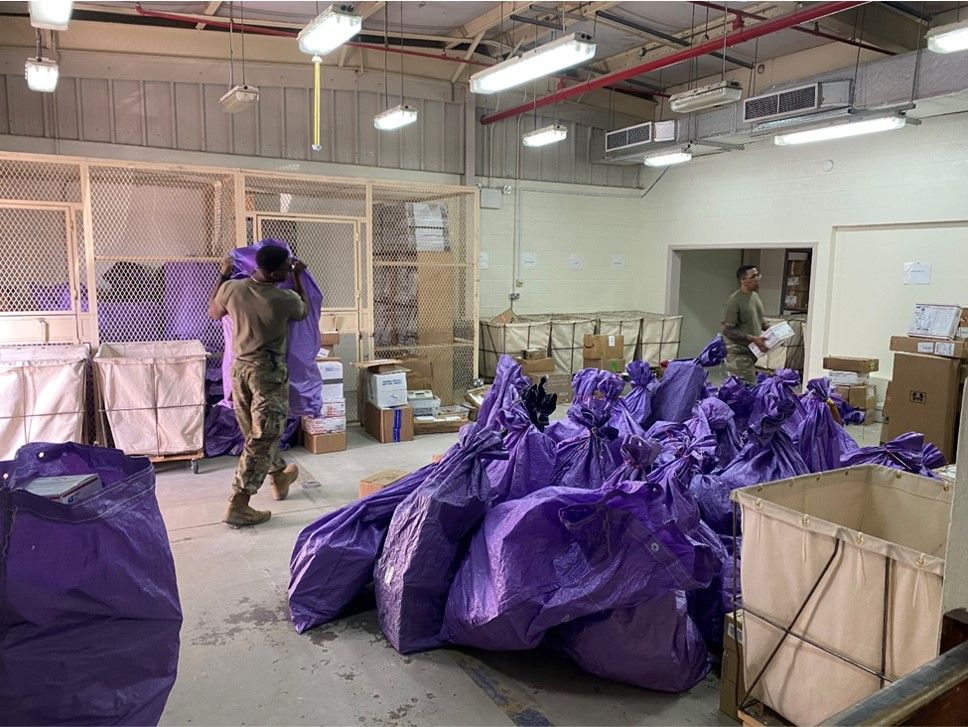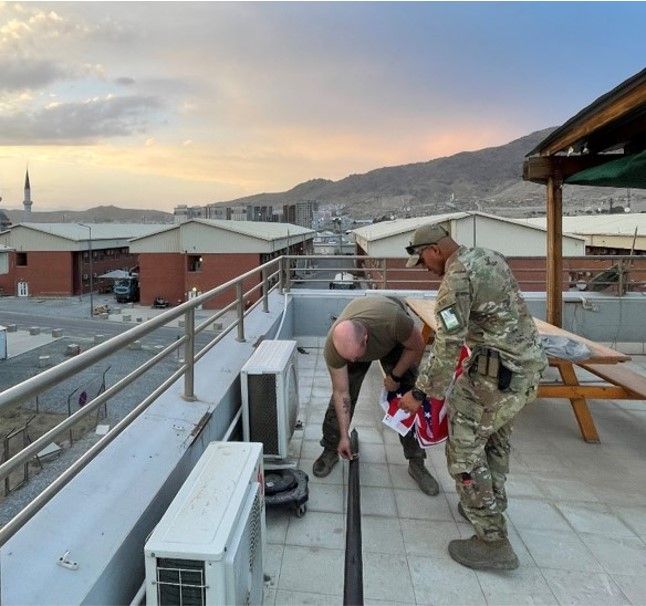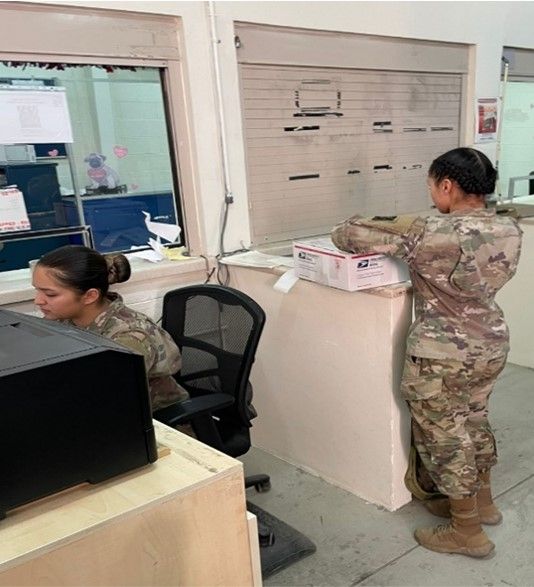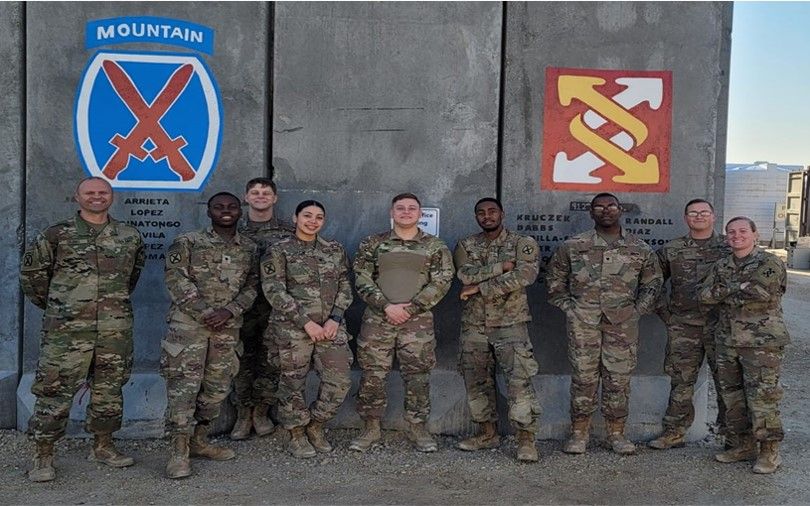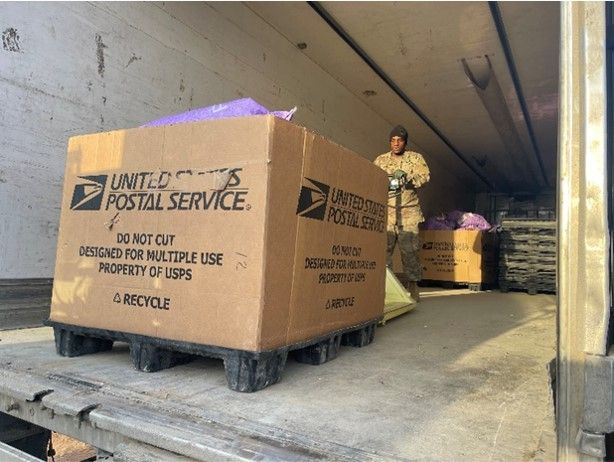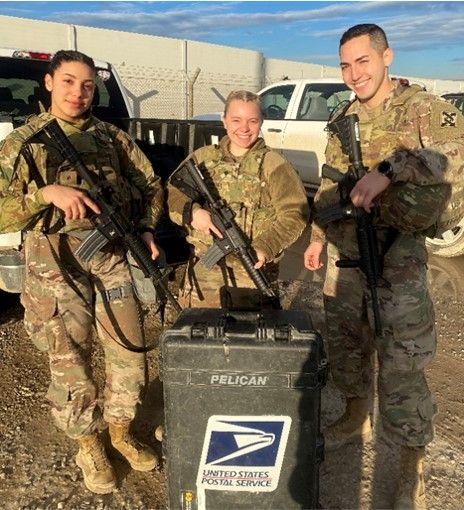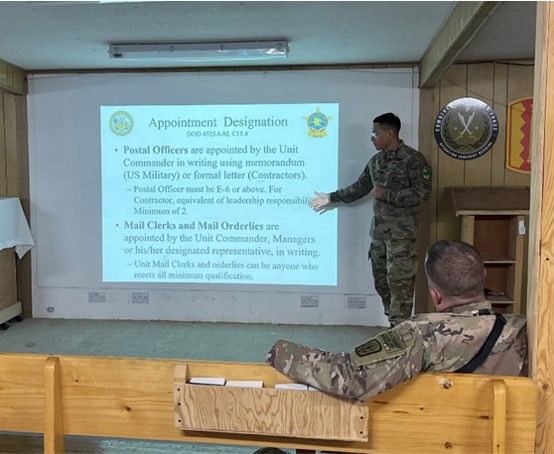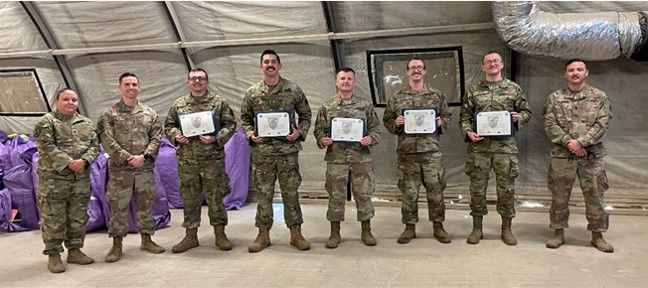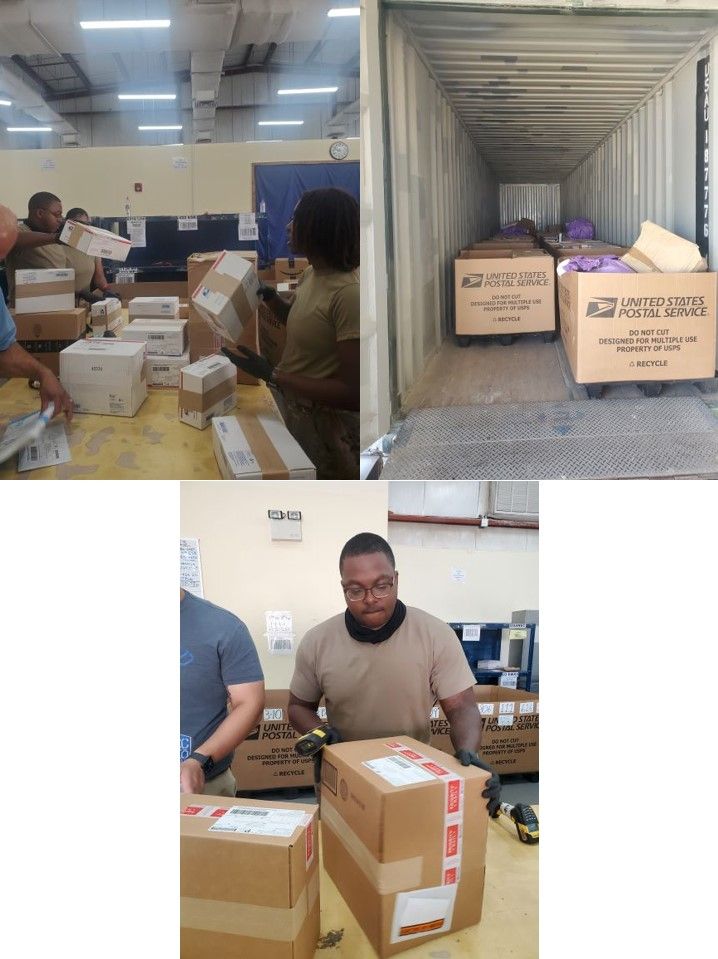Postal Operations - Another Side of our AG Profession

By CW2 John Lesui (510th HR Company, Plans and Operations OIC/HR Technician, 2020-2022) and CPT Emily McIntyre (510th HR Company Commander, 2020-2022)
Service Requirement Code (SRC) 12 HR Organizations tend to have a stigma attached to them on the Active-duty side of the house. As good Adjutant General’s Corps stewards, we keep close eyes on our successive assignments. We unconsciously avoid SRC 12 assignments, regardless of what our career map states, our bread and butter as AG professionals will always be the Battalion S-1; for there is no better place to learn how to accomplish our inherent objective. That objective is to maximize the operational effectiveness of the total force, by anticipating, manning, and sustaining military operations. Human Resources (HR) support operations can be summed up as building, generating, sustaining the force, and providing combatant commanders with the required manpower to enable freedom of movement and lethality. The downside of always supporting different types of units is that we miss out on HR in its purest form, the HR Company. The 510th HR Company’s 2021-22 deployment to the Central Command (CENTCOM) Area of Responsibility (AOR) allowed all assigned HR Professionals to provide postal support to key locations throughout the theater. Postal Operations is one of five key functions and tasks found in ATP 1-0.2 Theater-Level Human Resources Support.
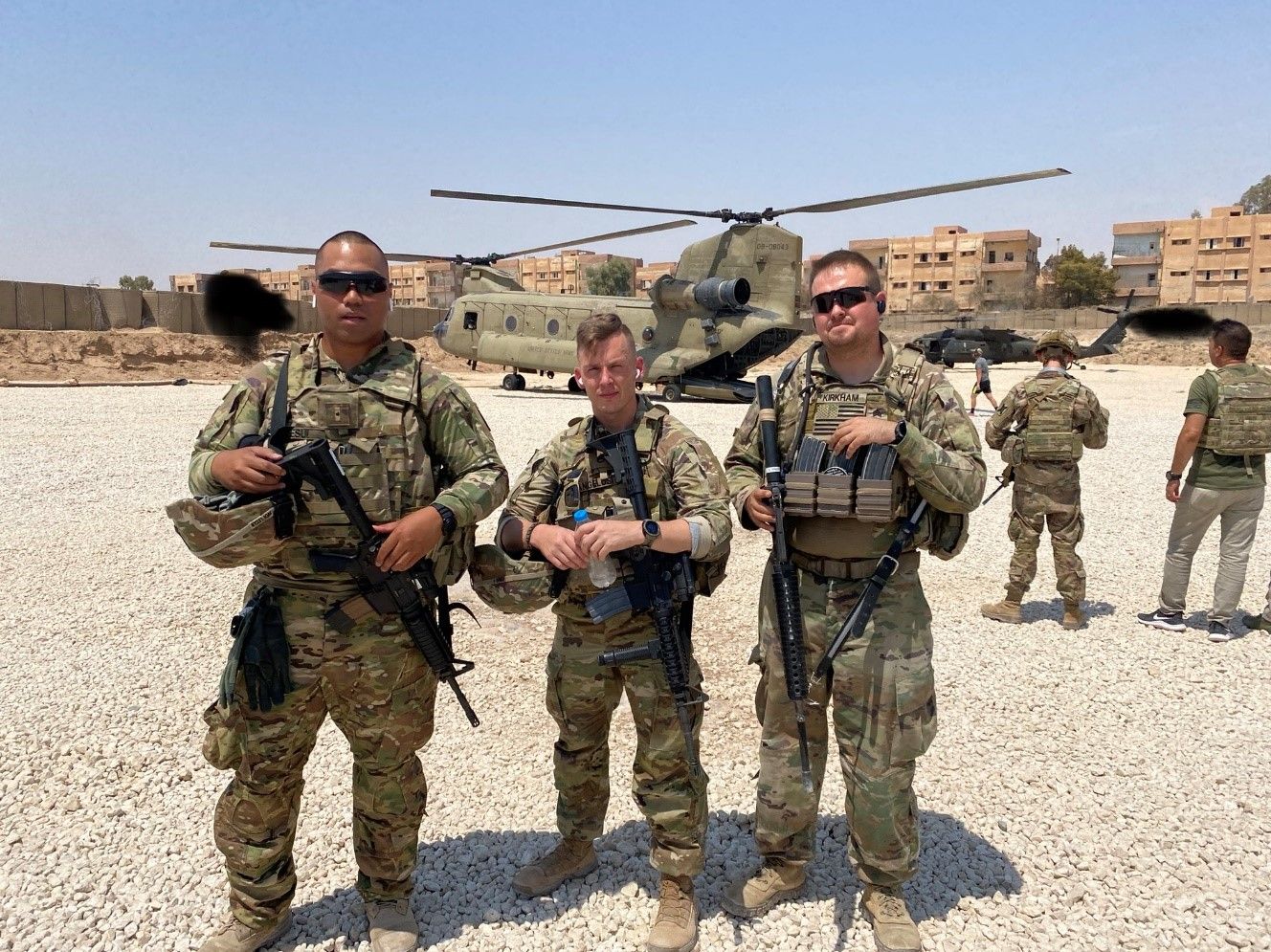
The 510th HR Company embarked on a nine-month deployment starting in June 2021. Last minute fills from HRC addressed many mission essential vacancies in key leadership positions, which postured the 510th in a position to successfully prepare for their upcoming deployment. A mock post office set up in April 2021 capped a nine-month attempt to certify its Postal Platoon during the COVID-19 pandemic, which checked off the last MET. Due to the COVID-19 pandemic, pre-deployment preparations were plagued with canceled postal certifications, canceled F4 and F5 classes, and canceled real-world opportunities for their Postal and HR Platoons to train. This resulted in less experience and fewer certifications across the formation. The 510th HR Company had one thing going for them - their determination to spearhead their mission to support theater-wide Postal Operations. Throughout this paper, the necessity to be expeditionary, flexible, and assertive through the eyes of an HR Company is an overarching theme. Talent management was a huge factor when selecting the right HR Soldier for a mission, getting out from behind our desks, and implementing effective processes throughout the theater, which led to the success of our operation in the CENTCOM AOR.
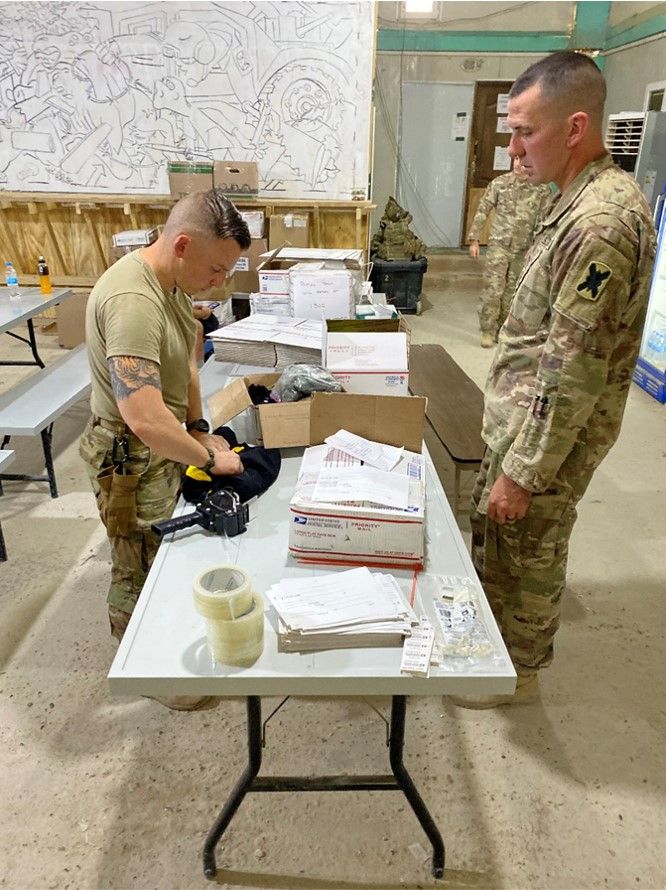
The excitement that only the CENTCOM AOR can provide did not take long to reveal itself after boots on the ground. A need for a postal rodeo in the Kingdom of Saudi Arabia (KSA) immediately presented itself. The 510th HR Company assigned four personnel to the mission, one from their organic A3 platoon, and two others from a Reserve Platoon that they inherited with their mission. This was the first taste of each location’s uniqueness and is a true testament to how HR Professionals must approach each AO to realistically provide HR Services.
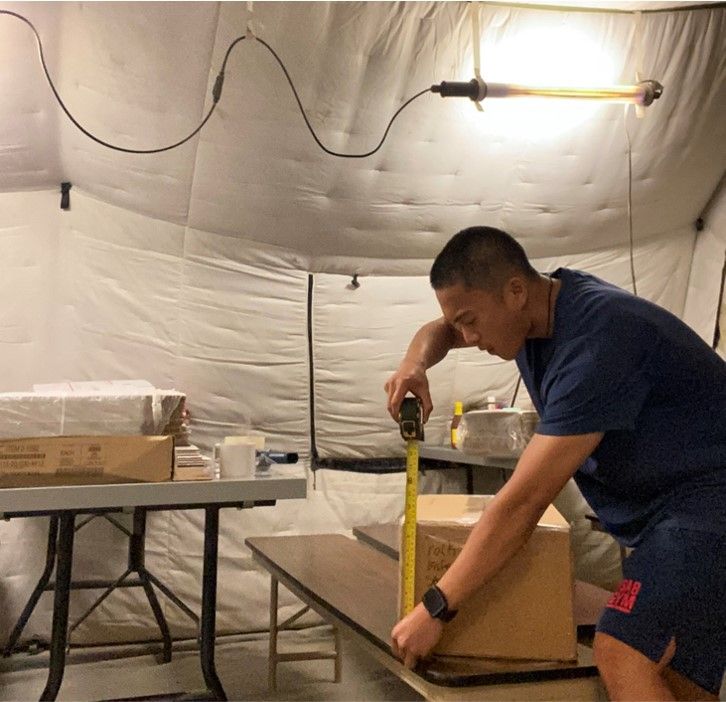
Talent management in our Army HR Community is very important in order to get the right HR Professional on the right mission. The KSA mission implied that the KSA Rodeo Team ideally needed to be able to ride in a box truck for eight hours each duty day, be physically fit enough to load and unload mail day and night, and be resilient enough to bounce around KSA with limited postal capabilities and life support. Sometimes that meant they hung their helmets in a DRASH tent, and some nights they hung them under the stars. The HR core competency “Provide HR Services” includes a verb. The word “provide” is that verb, which implies action on our part. Action to get out there and support our formations in ways only our profession would ask from an HR professional. This is something that the 510th HR Company reiterated constantly during their nine-month long deployment. The Company Command and Operations Section quickly reacted and deployed their Rodeo Team into KSA, where they successfully processed over 50,000 pounds of retrograde mail in outlying locations throughout the AO, until their complete closures in late August of 2021. The talent management that went behind the selection of the four rodeo personnel proved to be a huge success, as they ultimately operated dispersed from their Platoon leadership and Company Headquarters (HQ). This mission provided the 510th with their first taste of postal support to austere outlying locations.
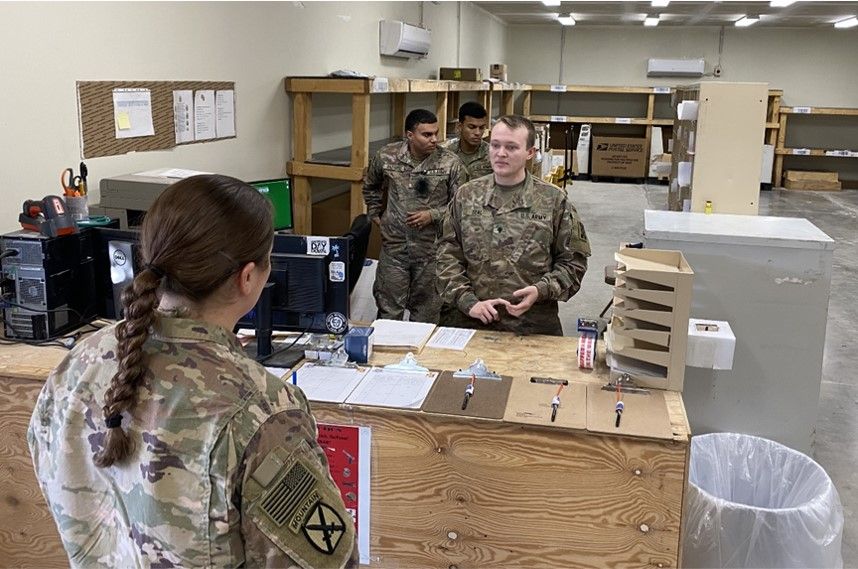
One major lesson learned was that the Operational Picture changes at least twice a quarter, and at a moment’s notice at that. In mid-July 2021, the 510th HR Company was tasked to provide a Postal Team to inherit the postal mission from Operation Freedom’s Sentinel (OFS). The OFS HR Company had stayed past their BOG requirement and had two weeks and a wake-up from having to head back to Fort Bliss to de-mobilize. Again, the 510th HR Company was to provide three Soldiers who fit the bill and could deploy to Afghanistan in order to completely retrograde what was left of the postal operation before pulling out of Kabul. There was only one problem - the 510th HR Company was short of Soldiers as no extra platoon was coming in to replace the Force Tracking Number (FTN) assigned to Afghanistan. The 510th Command Team decided that since they did not have any Lieutenants to spare, two Non-Commissioned Officers (NCOs) with multiple postal deployments would allow for a successful retrograde. 1SG Doerfer leaned on experience across the formation, chose two NCOs with multiple deployments, and added an NCO from the Company HQ.
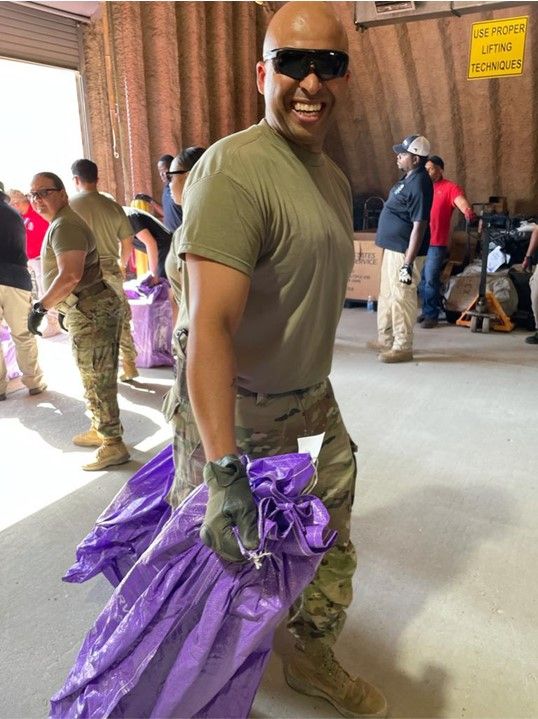
That team deployed and quickly began preparations for shutting down postal services in the last remaining Army Post Office (APO) in Kabul, the Hamid Karzai International Airport (HKIA) APO. While continuing to provide postal services to the Soldiers in HKIA and the U.S. Embassy in Kabul, the team prepared a destruction plan, evacuation plan, and searched high and low for anything that resembled frustrated mail that may have been overlooked in many of the warehouses on the airstrip.
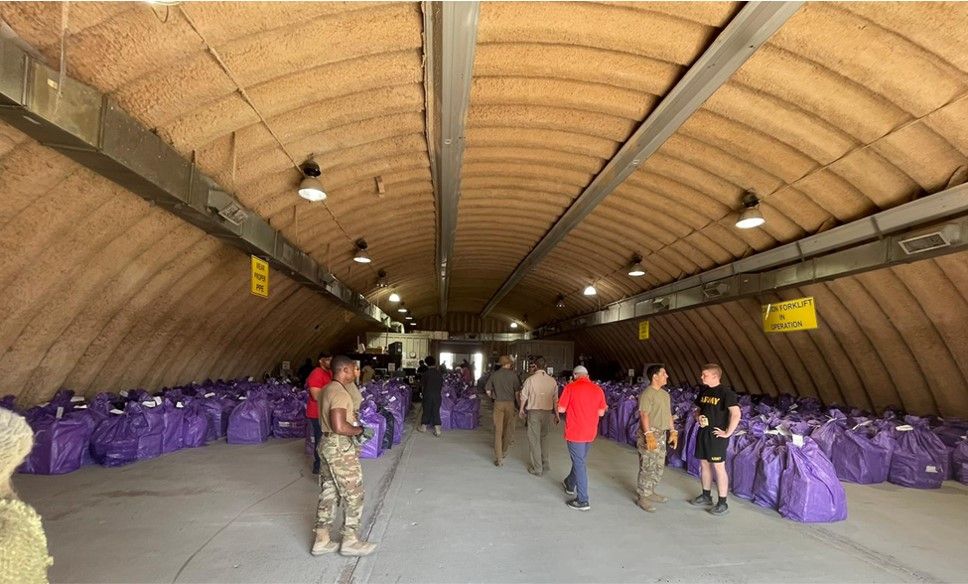
Postal Operations is a combined effort between the Department of Defense (DOD) and the United States Postal Service (USPS), so the accountability of equipment gets tricky. Equipment accountability required postal services calls for USPS equipment, so part of the evacuation or destruction plan in any supported location is to account for all the USPS equipment aside from the equipment on our hand receipts. The night of the actual evacuation caused the HKIA Postal Team to evacuate all mail and equipment out of HKIA in a sudden turn of events. The anticipated 90-day closure window turned into a mandatory 2-week closure. The 510thHKIA Postal team spent days and nights on the HKIA airstrip with pallets of mail and equipment ready for any Space Available (Space A) opportunity on the next thing smoking out of country. The team reported 11 postal pallets in HKIA, 10 with mail, and 1 with all the equipment assigned. Two weeks later, all the pallets made it safely out of the country, and to the mail terminal in Camp Arifjan, Kuwait, for redirect services. The operation surrounding HKIA brought a lot of uncertainty in July and August, but the HR preparation and coordination provided the 510thHR Company with much-needed timely accountability of all mail, equipment, and, most importantly, personnel.
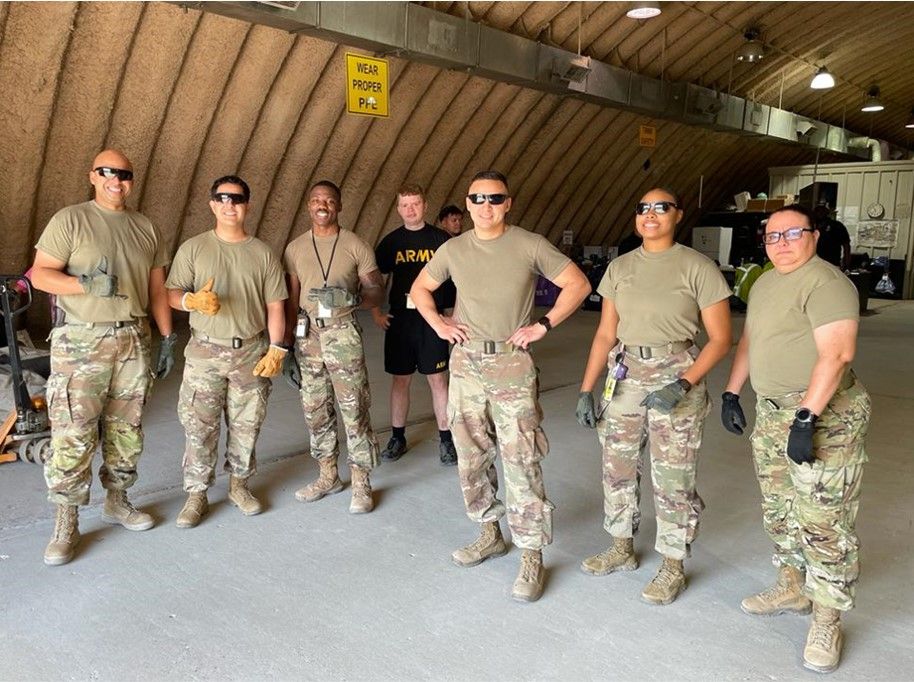
The HKIA Postal Team safely made it back to Kuwait and was assigned to the Joint Military Mail Terminal (JMMT), giving them the opportunity to see all 11 pallets through its redirect services. The Command Team saw it fit that the Afghan Retrograde Postal Team saw it through to provide the closure needed when things get hairy downrange. The operational experiences and after-action report provided the 510th with the knowledge needed to reevaluate all destruction and evacuation plans throughout the theater. The KSA and HKIA missions provided the realization that each APO is unique, and the destruction and evacuation plans needed to cater to those differences in each location.
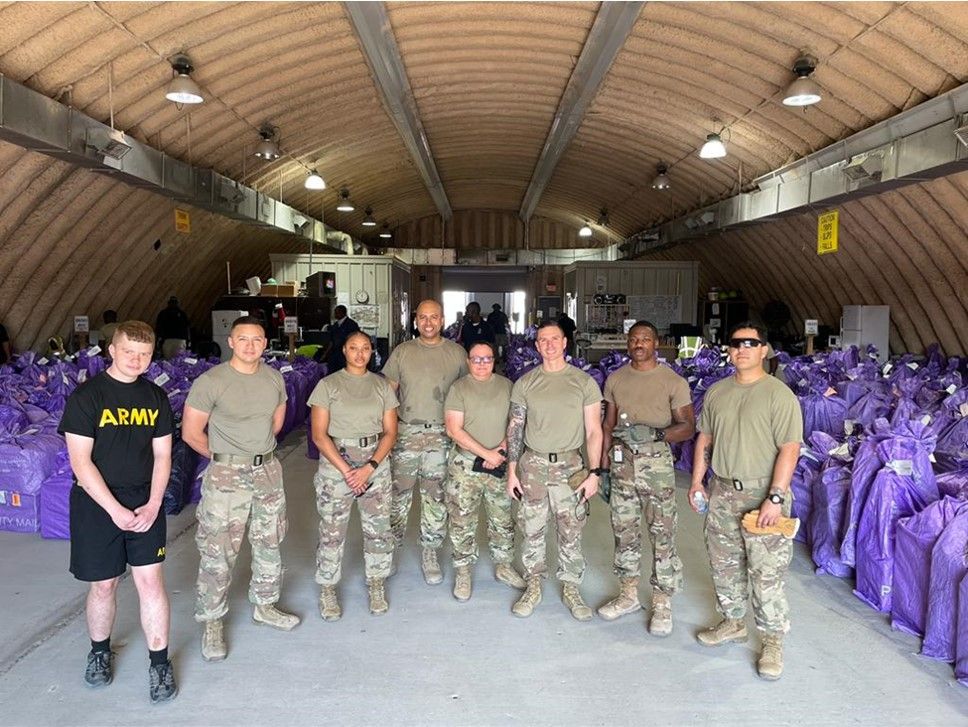
Unit Mail Room (UMR) Operations is crucial to mail security. In mid-July, aside from inheriting the Afghanistan postal mission, the 510th HR Company received reasons to be concerned with mail security and accountability in supported out stations in Syria. By late July, the 510th HR Company sent their Chief of Operations in to audit the concept of support with the team from the Erbil APO. The site visit provided the knowledge that the lack of UMR Operations and lack of UMRs were the main contributing factors to mail getting lost before reaching its customers. Some findings included damaged mail, old packages (30+ days) unsecured, locations without UMRs, lack of trained Unit Mail Clerks (UMC), and the lack of signatures on PS Form 3883 (chain of custody form). This gave the Company Commander the feedback needed to revamp the concept of support. With the help of the Company Operations Section, the Erbil APO planned and executed the revamping of mail support in theater, which required the Task Forces located in Syria to provide personnel and UMRs.
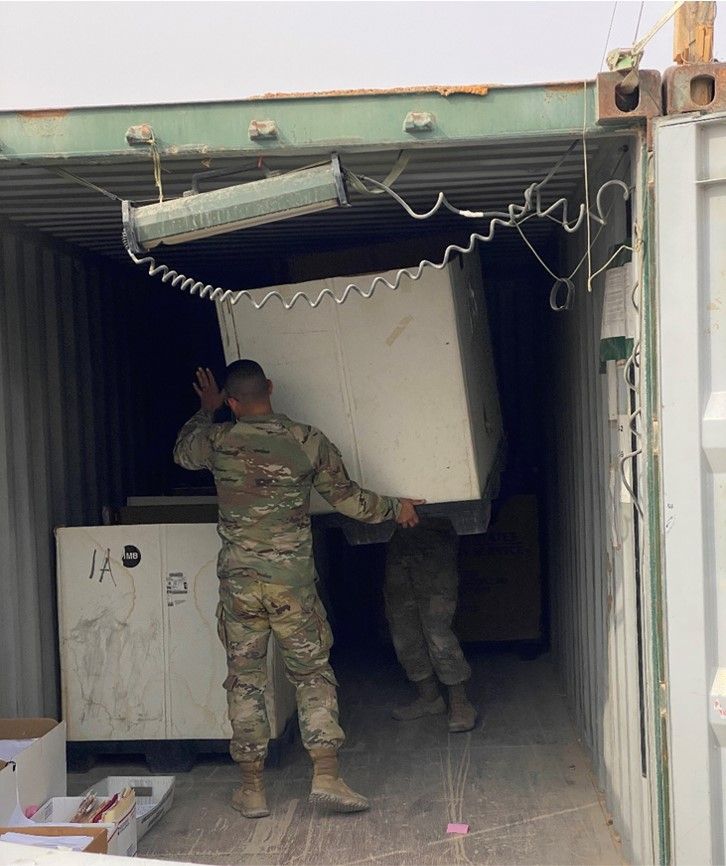
The 510th HR Company coordinated with CENTCOM to use the most package-friendly means of travel. Most of the mail was arriving in purple USPS sacks piled high to the ceiling of the box trucks and containers. The issue with that is mail at the bottom of the pile bore the load of all the mail above it. Eventually, the method to deliver mail into Syria is in tri-walls, which are stackable, meaning that each tri-wall bears its own weight, significantly reducing the number of damaged packages delivered to Syria. Secondly, Task Forces located in Syria were asked to designate a secure container or a room to be their UMR and provide personnel that can be trained to handle mail. In September of 2021, our Postal Rodeo Team took their technical inspector to each location to train unit mail clerks and inspect unit mail rooms. This also fixed the chain of custody issue as mail clerks were trained on the proper use of a PS Form 3883. Lastly, the Erbil APO created UMR-To-Go boxes. These boxes comprised the required inspectable items to pass a UMR inspection. All the boxes were loaded on the next convoy out to Syria, one per UMR, in which the trained UMC could receive their respective box. Upon receipt of the box, all the UMC had to do was post the hours of operation outside of the UMR and throw the box in the UMR. That UMR is now officially able to pass inspection, and ready to service its customers at each location without risk of loss or damaged mail.
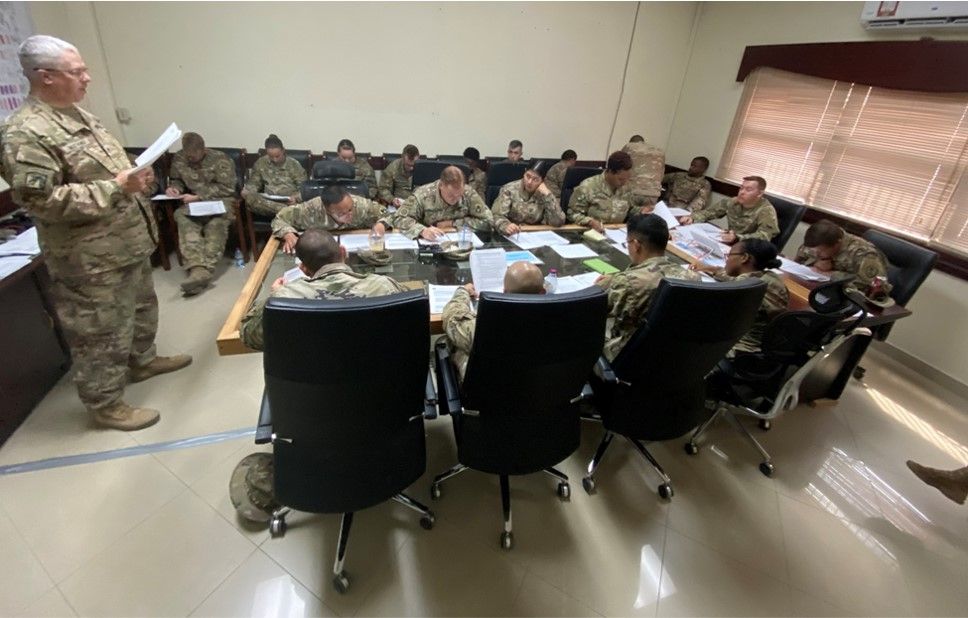
The success of Syria served to be a preface for postal support needed in Qatar. Qatar had contained an APO recently shut down by the 510th Company’s predecessors, however, after the recent events, the base was required to stay open. A requirement to set up a post office with limited capabilities was in order. In mid-December, the 510thHR Company sent their Chief of Operations and five Postal Soldiers from the 912thA5 Platoon into Qatar to build the postal support from scratch. With the Syrian lessons learned still in the mind of CW2 John Lesui, he and the team instantly got UMR operations first prior to opening the post office for mail calls. The preparation for opening the post office required shipping in postal equipment and supplies, providing unit mail clerk training to all tenant units, and coordinating postal support with the nearby Air Force APO. When opening postal operations in a new area, an integral touchpoint is between the HR Company and the Task Force S3/G3 in charge of that location. This relationship provided ease of coordinating mail handler training and unit mailroom inspections before opening for mail calls. The operation took two weeks to complete but was built off the lessons learned from the Syrian postal mission.
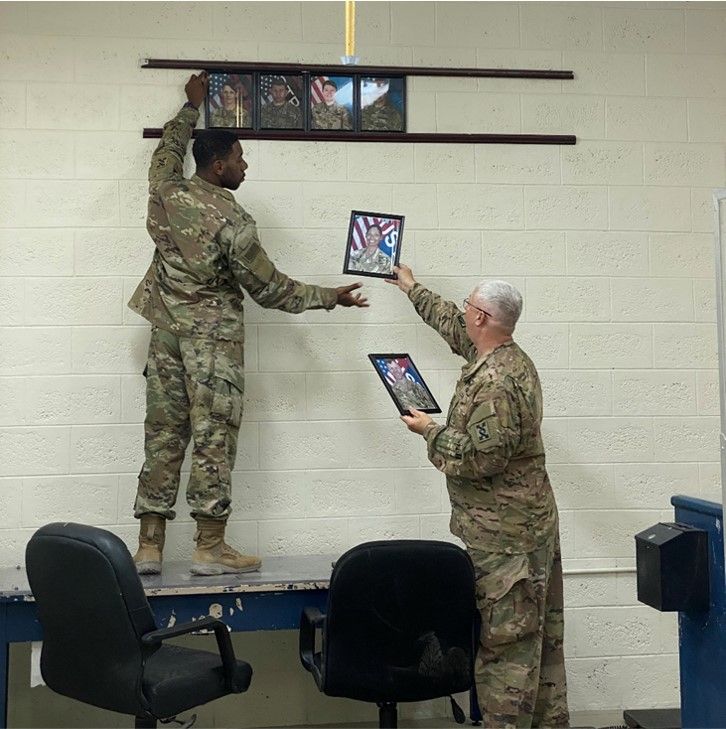
42As have plenty of opportunities to enjoy a more conventional side of the HR world. Aside from Postal Operations, SRC 12 assignments can include billets in Theater Gateway Operations and the Theater Personnel Operations Center. This last deployment has proven that we, as HR professionals, can get out from behind our desks, and get after more conventional missions, work together across all compositions, and directly impact the morale of Soldiers in theater. Our core competencies tell us that we are more than just HR Professionals; we are Soldiers first.
Honorable Mentions: 1SG Adrian Doerfer (510th1SG); 1LT Andrew Martin (510th Executive Officer), Mr. Mike Arnold (CENTCOM Trans and Operations Chief).
